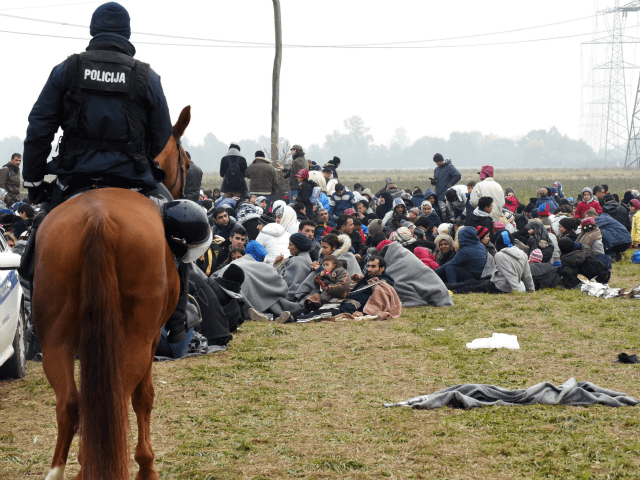A leading United Nations (UN) official in Geneva has said European leaders were warned the migrant crisis was going to happen “at least two years ago”, and suggested prevention and preparation would have eased the situation. He also warned that climate refugees will cause “real trouble” if moves are not taken now.
Reviewing the current migrant crisis, Director-General of the United Nations Office at Geneva Michael Møller said “such phenomena will continue.” He told Greek newspaper I Kathimerini the scale of the problem was predicted, and seemed to suggest that a “narrative” should have been formed that would convince Europeans to accept migrants more readily:
“The crisis we have today, we knew it was going to happen. The leaders of Europe were told it was going to happen at least two years ago. So a little prevention and a little preparation in terms of the narrative to their voters would have gone a long way.”
The story the Danish bureaucrat believes should have been sold to voters is the standard argument of big business lobbies throughout the developed world:
“This very negative, xenophobic and frankly racist narrative that we’re seeing in many countries, including my own country – I don’t recognise my own country – is unacceptable, because the facts are different. The facts are that the whole of Europe – minus maybe one or two countries – needs migrants in order to keep the economy going. You can make a very clear economic and statistical case that there’s a direct correlation between the number of migrants a country takes in and economic growth.”
In Athens to mark the 70 year history of the UN, Mr. Møller is not optimistic about the future. In particular he warned of the development of so-called climate refugees:
“…looking at this crisis as an isolated incident doesn’t make any sense whatsoever. We are going to have more of these things and a lot worse. The moment climate refugee problems kick in we are going to be in real trouble, unless we sit down globally and figure out structures and ways to deal with this in the future. Not to reinvent the wheel every damn time that happens, but to rethink completely the humanitarian system, because I guarantee you that it will happen again.”
The only positive note sounded by Mr. Møller was in reference to the specific plight of Greece. It was put to him that the domino effect of border closures across Europe will eventually lead to huge numbers of migrants finding themselves stranded in Greece. Although offering an optimistic assessment of that country’s situation, one which he concedes may be “wishful thinking”, Mr. Møller’s explanation of his lack of concern will sound alarm bells in other countries:
“The pipeline of information is incredibly quick, so the reaction time is very brief. Once it’s clear that there’s a blockage for the time being, they’ll find other ways. They’re finding them now already. There’s incredible stories of people going from Russia to Norway by bike. So I don’t think Greece is going to be totally flooded. Turkey is going to accept keeping many of those who are coming. Maybe it’s wishful thinking.”
Suggesting that tensions are being felt between the UN and other supranational organisations such as the European Union and International Monetary Fund, Mr. Møller concluded his remarks on the migrant crisis by saying responses to it are incompatible with austerity economics, a policy which therefore needs to end:
“That’s just one of these perfect storm situations. The decisions to impose austerity were taken before the refugee crisis.”

COMMENTS
Please let us know if you're having issues with commenting.